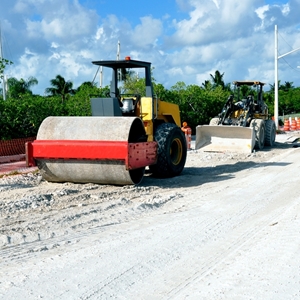With the release of the latest federal budget, many Australians could soon begin turning to the civil construction industry for apprenticeships and traineeships.
This is due to the announcement of extensive investment in infrastructure projects across Australia, including major road developments in Queensland and other states.
Deputy Premier Jeff Seeney and Transport and Main Roads Minister Scott Emerson each welcomed the federal government’s plans to fund key Queensland transport infrastructure projects.
“We promised to deliver better infrastructure and planning and last night’s federal budget confirms that we are doing just that by effectively advocating for Queenslanders,” Mr Seeney explained.
Projects supported by the federal budget include improving the Bruce Highway ($6.7 billion), completing the Toowoomba Second Range Crossing ($1.3 billion) and upgrading the Warrego Highway ($508 million).
Mr Emerson said this funding would go a long way to help “deliver more capacity, safety and flood mitigation projects across Queensland”.
However, before committing to a career in civil construction, it is important that you understand the responsibilities and requirements of apprentices and employees in this industry.
What is required of a civil construction apprentice?
There are a wide range of occupations available in the civil construction sector, but those seeking apprenticeships related to the infrastructure projects above are likely to land in the role of a road worker or paving and surface labourer.
Generally, to become a road construction worker, you will need to complete a traineeship or apprenticeship in civil construction. While it is possible to complete a traineeship in one or two years, a full apprenticeship is often preferred and can lead to more specialised roles within the industry.
Civil construction workers are required to be fit and healthy due to the high physical demands of the job. Additionally, individuals should enjoy spending time outdoors and not mind working in loud environments.
An apprenticeship or traineeship in this field will typically involve removing topsoil, laying bitumen and concrete, digging up roads to lay pipes or cables, among other duties. Additionally, individuals could also be asked to undergo traffic control training to ensure they can safely work alongside and direct public and work vehicles.
Some people are surprised to discover the amount of cleaning and related tasks are required in a civil works apprenticeship. This is because a well-made road requires concrete and bitumen to be trimmed and surfaces to be swept before laying asphalt, as well as the maintenance of landscaping on the edge of roadways.
If you would like more information about civil works apprenticeships, you can take our Harrison Career Assessment to find out whether this path is right for you.

